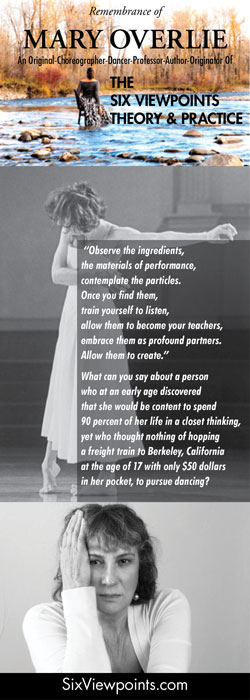Strolling Player: The Life and Career of Albert Finney
 When Finney celebrated his ninth birthday, his home city of Salford, within the Metropolitan borough of Manchester, was ablaze with bonfires and fireworks. The festivities were not to commemorate his birthday. Even Finney was not so precocious as to be feted at the age of nine – although given his subsequent achievements nothing would surprise me! It was, of course, to mark VE Day, the end of the Second World War. May 8th,1945 – which fell the day before his birthday.
When Finney celebrated his ninth birthday, his home city of Salford, within the Metropolitan borough of Manchester, was ablaze with bonfires and fireworks. The festivities were not to commemorate his birthday. Even Finney was not so precocious as to be feted at the age of nine – although given his subsequent achievements nothing would surprise me! It was, of course, to mark VE Day, the end of the Second World War. May 8th,1945 – which fell the day before his birthday.
Finney recalled: “I’ve always found light magical and still find fireworks magical because it seems to me that in many ways they’re a bit like lives, about existence because the energy takes it somewhere and then it’s gone. I think in some ways our lives are like that. There’s hopefully a burst of something or an ascent in some way and, then, it’s over. That had a big effect on my life.”
Such a major event would have had a major impact on a young boy. And, of course, so with the image of Churchill – whom Finney would portray some memorably more than a century later – giving the crowds in London a victory salute. For Finney, the war years in Salford were sometimes scary and bleak and the blaze of color that day proved unforgettable.

Albert Finney in 1966
~~~~~~~~~~~~~~~~~~
Charles Laughton invited Finney to Stratford. The veteran actor was to play Lear, and also Bottom in “A Midsummer Night’s Dream.” He wanted Finney in the company. Finney had little choice but to follow his mentor. Finney’s period at Stratford, however, was not happy. One of the problems was that at drama school, and then at Birmingham, Finney had been feted as the great young leading man. At Stratford, however, Finney found himself surrounded by seasoned players – and he was still only twenty-three.

Charles Laughton
The stars besides Laughton, were Paul Robeson as Othello and Laurence Olivier as Coriolanus. Other veteran performers included Harry Andrews whom Kenneth Tynan had described as ‘the backbone of British theater’. Also, there was Angela Baddeley and Edith Evans – the latter, Finney always said, his favorite leading lady. If only cameras had captured what must have been an extraordinary season. Of these performances only “A Midsummer Night’s Dream” was filmed for posterity.

Paul Robeson
Zoe Caldwell recorded the magnificent impression made by Robeson: “We all nervously awaited the arrival of Paul Robeson from Russia. Paul was, in so many ways, a giant of a man. All his life he had excelled – as an athlete, a scholar and a singer – and because he seemed to have no fear he spoke out against injustice wherever he found it.”
“I think envy had a great deal to do with his being driven from his own country. He was a Gulliver among us Lilliputians. He spoke to everyone in the same voice, no matter how grand the person, no matter how small. And he never mentioned his race.”
Meanwhile, Finney, playing Edgar watched as Laughton, then pushing sixty, wrestled with Lear. An air of sadness surrounded the production. For forty years, Laughton had studied the role of Lear. Intellectually and emotionally he was ready, but physically he was not. He walked unsteadily, occasionally veering to the side. According to Caldwell, who played Cordelia:
“He was grossly over-weight and standing was a chore. He loved to sit on a chair at the center of a circle surrounded by young people sitting or kneeling, listening to his wisdom… Charles had left out the large ingredient for the big roles: stamina.”
Zoe Caldwell believed that Laughton, who, we should remember died three years later, had taken on Finney as a young protege and was projecting on him his throated ambitions.
“I think Charles felt somewhat vicariously, that he could play the roles that he had never played – Romeo, Hamlet, Henry Y, through Albert. This is something older actors sometimes do and it does not help either the younger the older actor. There was a danger in Albert on the stage but like all young actors he had to make his own mistakes, his way in order to develop his own talent.”

Albert Finney in “Night Must Fall” (1964)
~~~~~~~~~~~~~~~~~~
Finney later said he felt imbued with energy, even after a colossal part like Hamlet. It was though the play, as written, fulfilled a cathartic need in an actor: “The great difference between stage and screen is that in the theater, if you’re playing a demanding part, you can get a physical sense of repletion.”
“At the end of the evening, you really feel it you’ve been used and stretch physically, mentally, emotionally. Playing Hamlet is extraordinary that way. You go through the whole evening talking, talking, talking. And then you get to a duel with Laertes, and you feel you’ve got nothing left. But because the playwright asks you to do something physical, it’s actually a very energizing moment in the play. You’re using a different part of yourself for five or eight minutes after all this ‘To be or not to be’ stuff.”
“Having been an actor, Shakespeare understood how it would work. In movies you don’t get that physical fulfillment, because you spend a lot of time sitting around waiting for just a little burst of energy. You go home mentally tired, but you’ve not used your body. Some days are very frustrating, when you go in full of beans, and three-quarters of the day is lost in lighting the scene.”
.jpg)
Albert Finney
~~~~~~~~~~~~~~~~~~
“One of the terrible things about the sense of permanence is that you’re not open to possibilities. I find possibilities very pleasurable and sensual and exciting… What I do is resist seeming to be one thing. I may be deluding myself, but there’s a sense of the rogue and vagabond, the strolling player, seeing what comes up – Where do I want to go next? How do I feel? It actually means I don’t have to fit within society, into a particular mold. I like the sense that one might still be surprised by life.

(L.-R.) Anthony Perkins and Albert Finney (as Hercule Poirot) in a scene from Agatha Christie’s “Murder on The Orient Express,” 1974. (Photo: EMI Films/Archive Photos/Getty Images)
~~~~~~~~~~~~~~~~~~
His other reason for staying in the UK was that Finney felt that, in America, a commercially successful film brought untold pressures on its leading actor.
“In America there’s pressure to stay on the treadmill and follow up a movie with a movie with a more successful movie. That’s impossible of course. Nobody’s career has ever continued to go upward and down and onward without a few backward steps. The graph of any life fluctuates. All graphs go up and down. Look at the great acting careers in England – Olivier and Gielgud and Richardson. They’re working actors. They don’t worry that they shouldn’t do theater or television because they’re movie stars.”
“Picasso didn't paint a masterpiece every time he stepped up to the easel; sometimes he just did little sketches, but he kept working. That's how Richardson, Olivier and Gielgud feel. If they’re not doing a movie or play they’ll do a television play or radio play, just to practice their craft. It’s tougher to do that in America.”
Brian Cox, in a recent interview, made the point: “It is important to know the roots of things, where you are from and how acting developed… the passing of people like Peter O’Toole and Alan Bates, people of that generation, they belonged to something which was quite revolutionary, previous to that it was the Olivier’s, it was the Gielgud’s.”
“Knowledge of yesterday’s great was essentially,” he said, “to establish that sense of a continuum, and where these actors broke ground in very different ways. It just needs attention, if nothing else. I think one of the problems of the day is that history started five minutes ago.” •2017 (Excerpts from Strolling Player: The Life and Career of Albert Finney by Gabriel Hershman, published by The History Press. Reprinted with the permission of the author.)
Gabriel Hershman Editor, Biographer. Mr. Hershman’s first book was the biography of the late Ian Hendry, “Send in the Clowns.” His second book, Strolling Player, a biography of British actor Albert Finney, was published by The History Press in 2017, and his third biograph is of the late Nicol Williamson, “Black Sheep,” published by The History Press in 2018. He has had features and articles published in many magazines including “Counter Punch,” “The Jewish News” and “The Salisbury Review.”









































